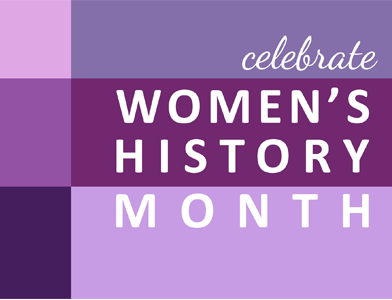
CareFirst BlueCross BlueShield (CareFirst) proudly celebrates Women’s History Month, honoring the profound contributions of women to society. As part of our ongoing commitment to women’s health, we continue to advance policies and programs that provide women with the preventive care, maternal healthcare and essential medical services they need across different life stages.
Through innovative initiatives and strategic partnerships, CareFirst ensures that women receive high-quality, coordinated care. We are dedicated to empowering women through education and advocating for policies that promote their long-term health and well-being.
The Importance of Preventive Screenings for Women
One of the most powerful tools for maintaining long-term health is preventive screening. Regular screenings are crucial for the early detection and effective treatment of various conditions, some of which disproportionally impact women. The recommended screenings can vary based on age, health status and life stages. To determine which screenings and exams are right for you, consult the HHS Women’s Preventive Services Guidelines.
Factors, such as family history and lifestyle, can put certain individuals at higher risk for some health conditions and impact which screenings are most appropriate. Individuals should talk to their doctor about what health screenings are right for them or their family members. Screenings recommended by federal bodies are summarized below.
- Breast Cancer Screenings: The U.S. Preventive Services Task Force (USPSTF) recommends that women aged 40–74 at average risk for breast cancer get a mammogram every two years. For many women, mammograms are the most effective way to detect breast cancer early, making it easier to treat. However, women at higher-than-average risk may follow different screening recommendations, which may include breast MRI, clinical breast exams and breast self-exams.
- Cervical Cancer Screenings: According to the CDC, cervical cancer screening should begin at age 21 to help detect or prevent the disease early. The Pap test identifies abnormal cervical cell changes that could lead to cancer, while the HPV test detects the virus responsible for these changes. Regular screenings can significantly reduce the risk of cervical cancer and improve treatment outcomes.
- Osteoperosis Screenings: Women are at increased risk for osteoporosis after menopause. Bone density screenings allow for early intervention to prevent fractures. The USPSTF recommends these screenings for women aged 65 and older.
- Heart Health Assessments: According to the CDC, cardiovascular disease is the leading cause of death among women in the U.S., currently affecting over 60 million women. Regular cholesterol checks, blood pressure monitoring and lifestyle interventions are essential for maintaining heart health. While heart disease can develop at any age, early prevention and routine screenings are key to reducing risks.
CareFirst’s Programs Supporting Women’s Health
CareFirst is committed to supporting women’s healthcare needs through direct services to our members, collaboration with providers and community partnerships. Some of our efforts to ensure women have access to essential care and resources include the following.
- CareFirst Online Pregnancy Center: CareFirst is dedicated to supporting our members during pregnancy. Our online pregnancy center offers interactive tools and resources on pregnancy, labor, delivery, newborn care and postpartum depression. Members can access our Healthy Pregnancy Resource Guide and receive extra support for high-risk pregnancies, such as access to nutritionists and social workers, through our care management program at no cost. We also provide lactation consultant services through CloseKnit and have behavioral health professionals available 24/7 for additional support.
- WellBeing Platform: CareFirst provides members access to WellBeing a personalized, digital platform to support individuals in living and maintaining a healthy lifestyle. Wellbeing offers comprehensive preventive health programs to support women in maintaining their well-being through regular screenings, lifestyle adjustments and wellness coaching for managing chronic conditions. It also includes essential tools for physical fitness, stress management, family care and financial health, helping women take charge of their whole health.
- B’more for Healthy Babies (BHB): CareFirst is the first and largest funder of BHB, which provides comprehensive maternity support, including educational resources and personalized health coaching, for expectant mothers at every stage of pregnancy. CareFirst supports the Baltimore City Health Department, healthcare institutions and community organizations in offering services such as home visits, prenatal and parenting support groups, and fitness classes. Additionally, CareFirst members enrolled in Medicaid can participate in B’more for Healthy Babies, a free fitness and nutrition program for women with young children.
Advancing Women’s Health Through Policy
The continued improvement of women’s healthcare requires policies that prioritize prevention, access and quality care. Strengthening maternal health services, promoting preventive screenings and improving care coordination are key to ensuring women receive essential support throughout their lives. As healthcare policies evolve, opportunities remain to invest in prevention and promote innovative solutions that address women's unique health needs. Recognizing Women’s History Month highlights the importance of advancing policy-driven solutions that enhance health outcomes now and in the future.
For more information about CareFirst’s programs and services for women, visit our page for members.